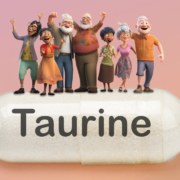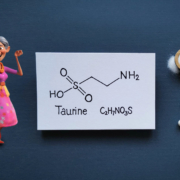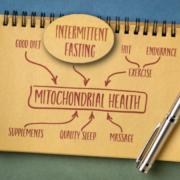Metabolism Across Our Lifespan
It might not surprise you to learn that adjusted for body weight, infants under one year have the highest metabolism of all age groups. It makes sense; they’re growing so fast at that point. From there it’s all downhill, metabolically speaking, at a rate of about 3% per year until about 20 when metabolism stabilizes. The lowest metabolism? We reach that sometime after 60. If we live to 90, researchers found that caloric needs declined by 26%.
That’s the “what.” More important is the “why”; researchers had some but not all of the answers.
Metabolism and Life Events
Researchers examined metabolism during adolescence. The expectation is that metabolism would increase during this period of growth, but they found that it didn’t change significantly.
There was also no significant increase in metabolism during pregnancy, at least, more than what was expected. In Healthy Babies, I talk about the caloric needs of pregnant women by trimester. Those caloric needs prove to be spot on. Sorry, but there’s no need to eat for two.
One more point: carrying extra fat results in an increase in metabolism. That makes sense because every extra pound means the muscles work harder in moving the weight, the heart pumps harder because there are more blood vessels, and so on. But when extra body fat is accounted for, there’s no difference in metabolism on a pound-for-pound basis.
Why Does Metabolism Decline?
Why does our metabolism start to decline faster at around 50 or 60? One factor is the loss of muscle mass; that’s why it’s so important to increase muscle mass and hang on to it as we age.
This study measured caloric use over 24 hours, so the age-related decline in physical activity may play a role in why metabolism declines: most of us are much less active over 50.
But one of the many researchers involved in the projects stated it this way: the reason for the decline in metabolism is that “cells are slowing down.” He went on to say that these changes occur in ways we don’t yet understand. Do the cells get tired? Have a harder time with cell division? Or are there some as yet unknown signal chemicals that are controlling the aging mechanisms that impact metabolism? We don’t know yet.
The Bottom Line
One study is not enough to find out all the answers to what happens to metabolism as we age, but it does provide some insights in where we can look to find the answers. One area that might be interesting is the mitochondria, the powerhouse of the cell; what happens there impacts our ability to make energy and that can definitely impact metabolism. We’ll keep an eye on this research as time goes on.
What are you prepared to do today?
Dr. Chet
Reference: Science 13 Aug 2021. 373 (6556):808-812. DOI: 10.1126/science.abe5017









